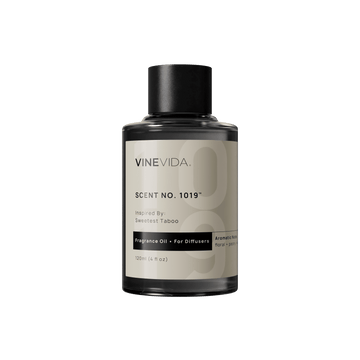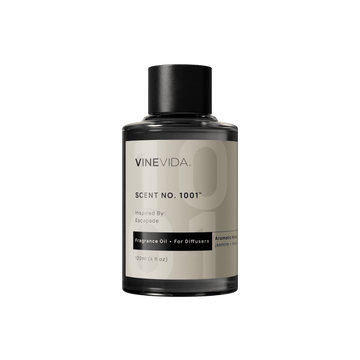Scientific Name: Pinus Sylvestris L
Origin: Austria
Plant Part: Needles
Scent: Fresh, Woody, Earthy, and Balsamic
Color: Clear - Pale Yellow
Consistency: Medium
Perfumery Note: Top
Initial Aroma Strength: Medium
Extraction Method: Steam Distilled
Scotch Pine Essential Oil: Uses, Benefits, and Blends
Let the fresh and fragrant scent of VINEVIDA’s Scotch Pine Essential Oil whisk you away to the forests of Hungary. The outdoorsy scent of Pine is perfect for both air fresheners and cleaning products, helping to stimulate the mind and rejuvenate the spirit at the same time. Pine Oil’s disinfecting properties mean it is an effective cleaning agent in its own right, often found in sprays, wood polishes, and multipurpose cleaners.
The essence of Pine is extracted from the needles of the Pinus Sylvestris tree. Also referred to as the Scotch, or Baltic Pine, this evergreen coniferous tree is native to Eurasia. The Scotch Pine can live for hundreds of years, with the oldest on record being a 760-year-old tree in Lapland, Finland.
Historically speaking, the Pine tree has been used by Native Americans for hundreds of years. They drank the needles and bark (which are full of vitamin C) in tea to both prevent scurvy and aid respiratory symptoms and even stuffed needles in mattresses to help repel insects. Today, Pine Oil is now most common cleaning product.
Scotch Pine Essential Oil Benefits: Component Breakdown
-
- a-Pinene: As its name indicates, a-Pinene is an aromatic terpene smelling strongly of Pine. It is common to coniferous trees and is a common odorant. A compilation of studies indicates a-Pinene to be an active anti-microbial agent, as well as an anti-inflammatory, though more research needs to be done on its bioavailability. It's one of the main components that contribute a huge share to Scotch Pine Essential Oil benefits.
- b-Pinene: b-pinene is a monoterpene that occurs naturally in the Scotch Pine. Like its counterpart, a-pinene, it is aromatic and smells strongly of pine. Studies indicate it also shares similar benefits, appearing to be effective as an antimicrobial, anti-inflammatory, and anticancer agent, among other things. However, as with a-pinene, more research is necessary to confirm its tangible use.
- delta-3-Carene: delta-3-carene is an aromatic monoterpene, and its use is common in the perfume industry. It is a colorless liquid with a sweet, earthy aroma, similar to Pine. Most Scotch Pine Essential Oil benefits are dependent on this chemical component.
- b-Phellandrene: Another monoterpene, b-phellandrene, plays a role as a plant metabolite. The aroma of this compound is a mix of citrus and mint, and it is common in fragrances.
- delta-Cadinene: delta-cadinene is a sesquiterpene and flavoring agent, often used in condiments, spices, and seasonings. Its aroma is of medium strength and reminiscent of herbs and wood.
- Camphene: A common monoterpene, camphene is frequently used in fragrances. Its aroma is very pungent, smelling strongly of waxy Pine.
Scotch Pine Essential Oil Uses: For Wholesale Purposes
Cleaning Products
Cleaning product makes the first place in the list of Scotch Pine Essential Oil uses. Pine oil works great as a cleaner and deodorizer. It is a major ingredient in many commercial cleaning supplies, including Pine-Sol. In addition to being an effective cleansing agent, Pine Oil contains some disinfectant properties, mainly against Gram-negative bacteria. Its aroma is long-lasting, leaving a pleasant, fresh scent wherever used.
Air Freshener
Scotch Pine Essential Oil benefits include its use as an air freshener. There are many different air fresheners on the market, including sprays, plugins, diffusers, and candles. The mechanisms of these work in a variety of different ways, though most work through masking. Other methods of action include adsorption, activation, or sanitization.
The global air freshener market was valued at over USD 10 million in 2017, and forecasts expect to see a target value of around USD 13 million in 2025. It is common to see air fresheners used in offices, cars, and homes, even though they are known to contain carcinogens and toxins that interfere with human hormones. Pine Oil is a popular ingredient in air fresheners due to its fresh, outdoorsy scent, as well as the fact that it works as a natural fragrance.
Soap Making
 Soap making is one of the significant uses of Pine Essential Oil. Pine Oil can be a great addition to your holiday soaps, though it is generally a supporting oil rather than the oil of focus. The scent of pine brings to mind Christmas trees and wreaths, and there are many festive combinations to use for a variety of different fragrances. Plus, soaps make excellent holiday gifts for friends and family!
Soap making is one of the significant uses of Pine Essential Oil. Pine Oil can be a great addition to your holiday soaps, though it is generally a supporting oil rather than the oil of focus. The scent of pine brings to mind Christmas trees and wreaths, and there are many festive combinations to use for a variety of different fragrances. Plus, soaps make excellent holiday gifts for friends and family!
What Blends Well with Scotch Pine Essential Oil?
The woodsy aroma of pine goes well with other earthy oils, such as Frankincense, Cedarwood, Rosemary, Red Thyme, and Balsam Fir. For a brighter aroma, try combining Pine with Lemon, Lime, or Sweet Orange Oils.
Is Scotch Pine Essential Oil Safe for Dogs?
No. Pine Oil is incredibly toxic to both cats and dogs.
Pine Oil can poison your pet through both ingestion and skin contact. Even using an active diffuser can cause the oil particles to travel through the air, potentially landing on your pet’s fur. This can put them at risk while grooming. We advise not using pine oil in any shape or form around your pet.
Read More: Is Vetiver Oil Safe for Dogs?
Signs of Pine Oil poisoning in pets include (but are not limited to)
-
- Skin or Stomach Irritation
- Vomiting (including Blood)
- Drooling
- Weakness
- Difficulty Breathing
What to do if you suspect your pet has come in contact with Pine Oil
-
- If it was via inhalation, immediately remove them to fresh air
- If ingested, it is vital not to induce vomiting or feed your pet charcoal
- If direct contact occurs, wash it off your pet with warm, soapy water
- Bring the product with you to the vet in a sealed bag.
- Your Veterinarian will likely want to do tests on their liver or kidneys to make sure unseen damage hasn’t occurred.
Other Precautions
The ingestion of essential oils is always contraindicated due to their high concentration levels. If you wish to use Scotch Pine Essential Oil for topical purposes, you should always dilute it first, using a Carrier Oil. Avoid using Pine Oil if pregnant or suffering any underlying conditions.
Flash Point
38 °C
Conclusion
Pine Oil can make a great additive to natural cleaning products. You can find it in disinfectants, floor cleaners, wood polishes, and air fresheners. If you have a pet, you should be very careful using any product containing Pine Oil, as it is incredibly toxic to dogs and cats. If diffusing the oil to scent your home, use it sparingly and for shorter durations of time.

- Reviews
- Questions

I've loved everything from Vinevida until this one. If anything is Pine-Sol not Pine Scotch. OOB it was sour right away, like lemony almost. Mixed it into body cream and let it sit overnight and it was the same the next day. It doesn't strike me as pine, and if I didn't know and did a blind smell test I'd never have guessed pine.

Authentic pine smell at a fair price
This is the first bulk Scotch Pine essential oil I've been able to find, which is reason alone to give it a try. But really, this Scotch Pine essential oil smells just like the thick of a pine forest—earthy, robust, and fresh. The candles I've created with this oil have come out great. Plus, it's prop-65 compliant, which is a huge plus for me. This is now a staple in my essential oil repertoire. Thanks VINEVIDA!
You may also like
Recently viewed

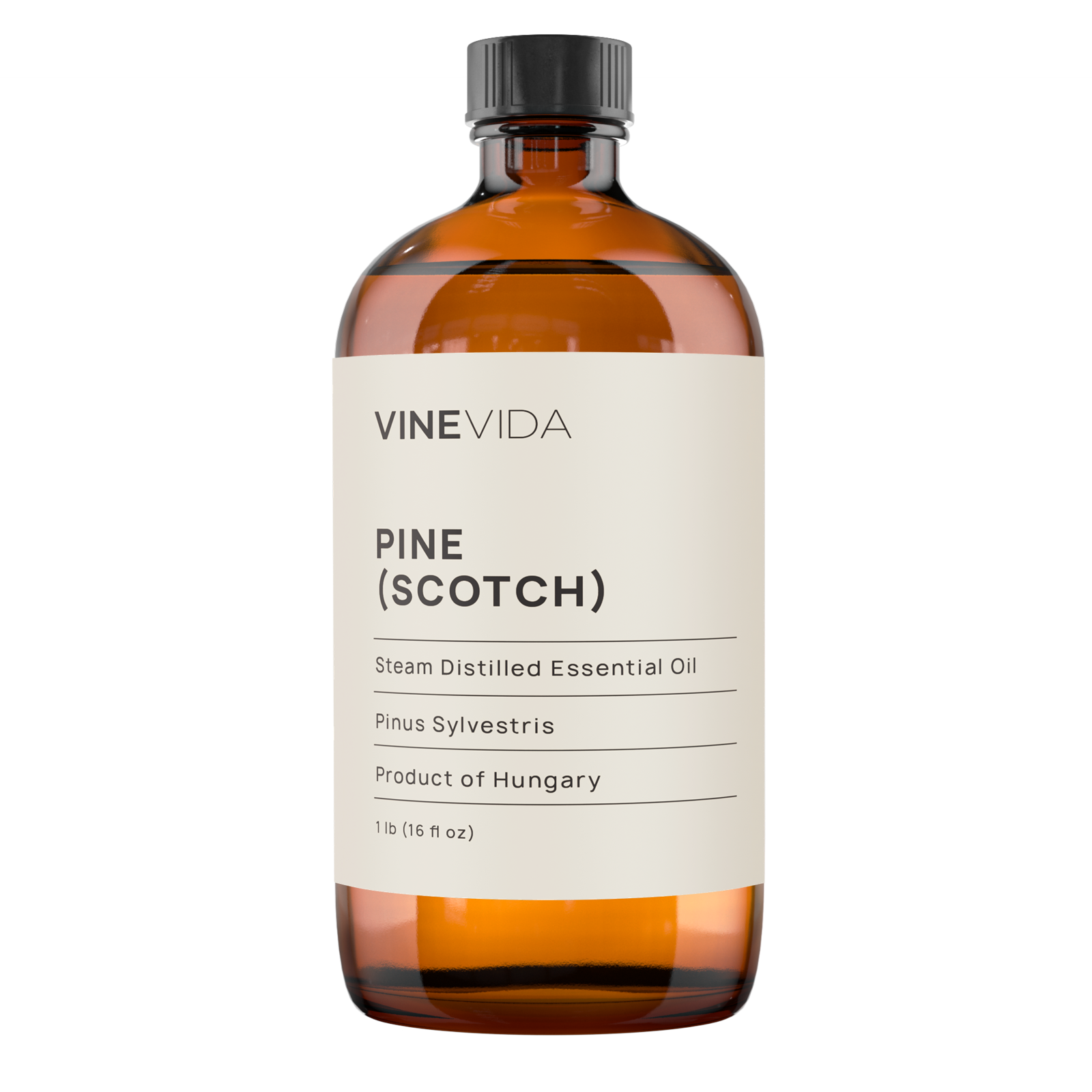
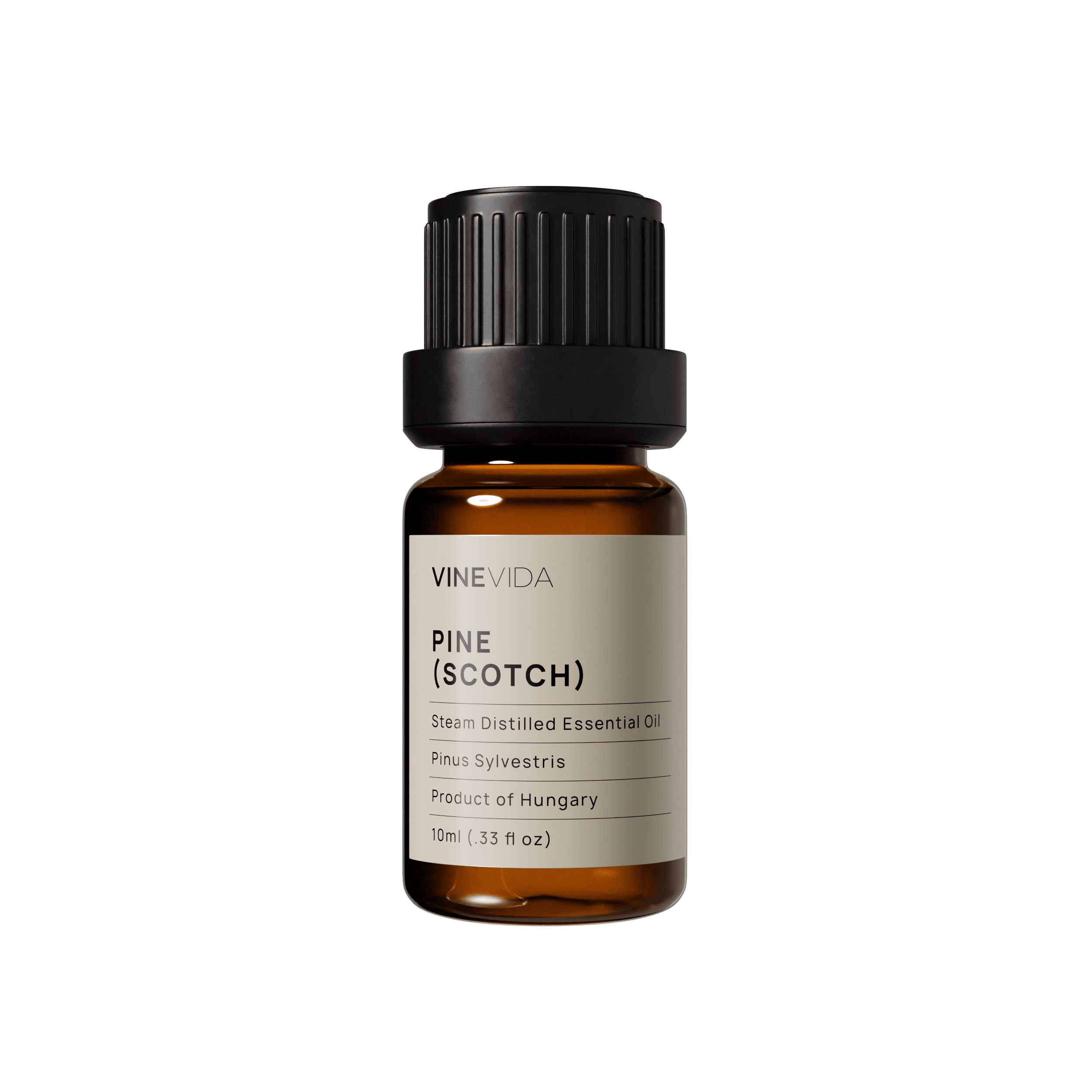
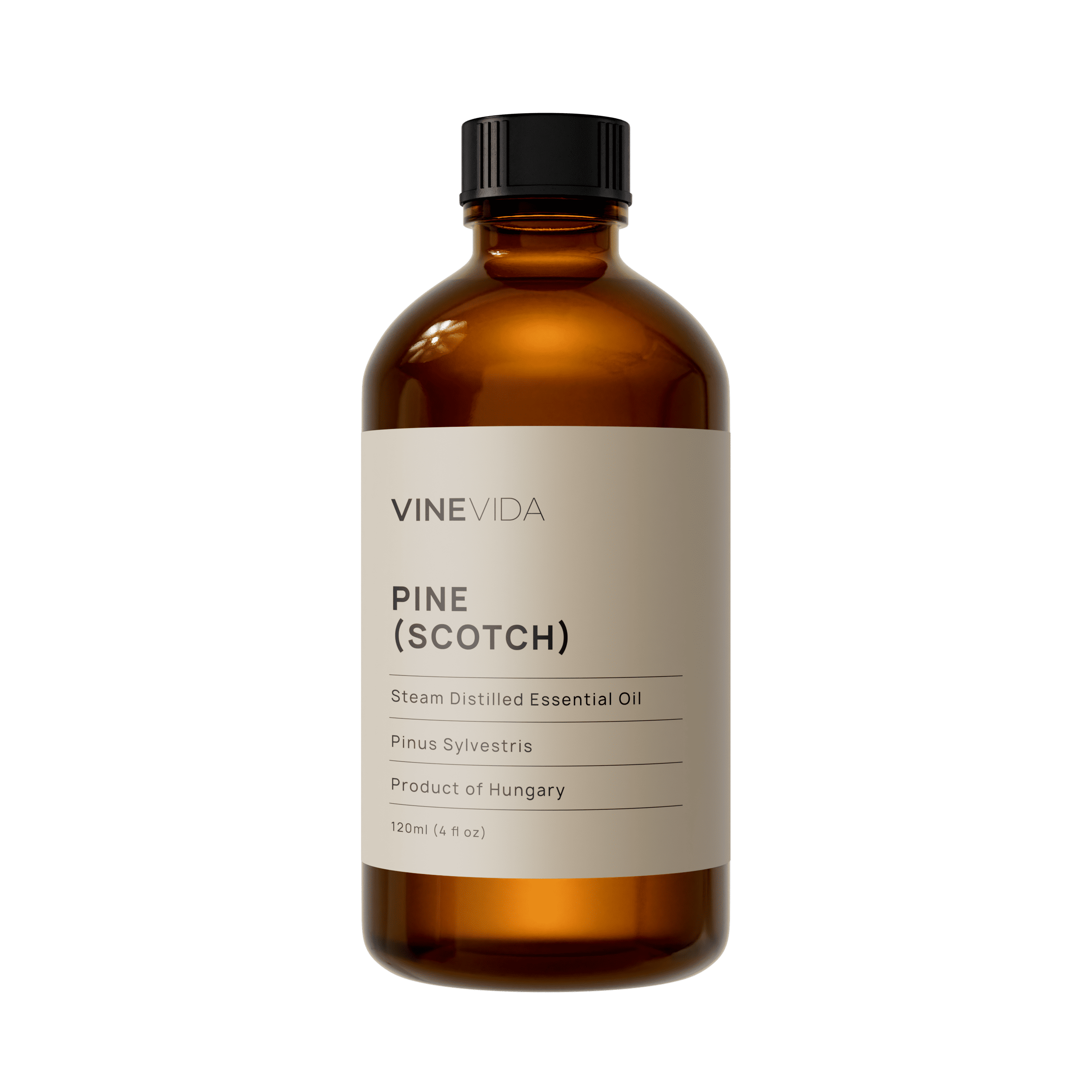
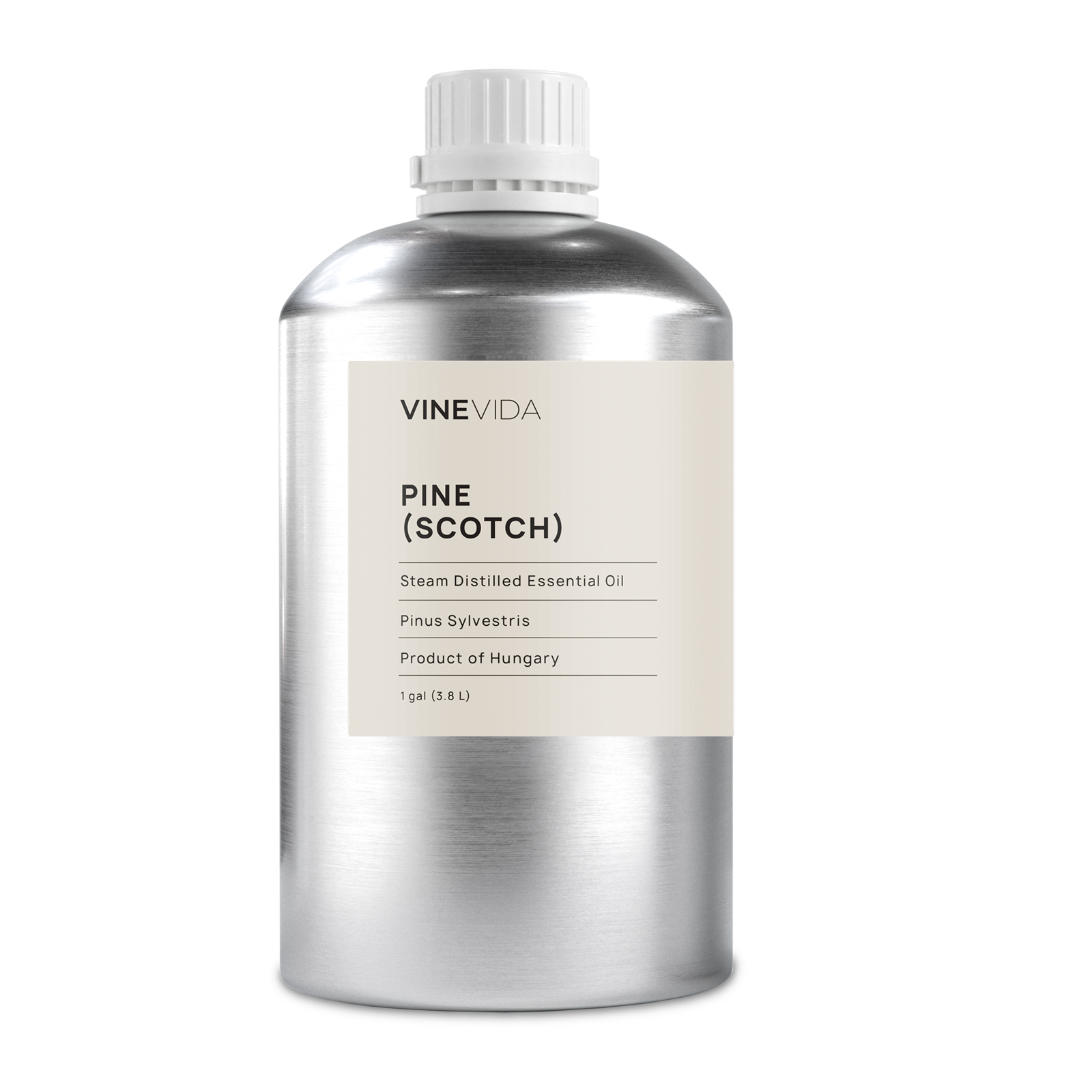
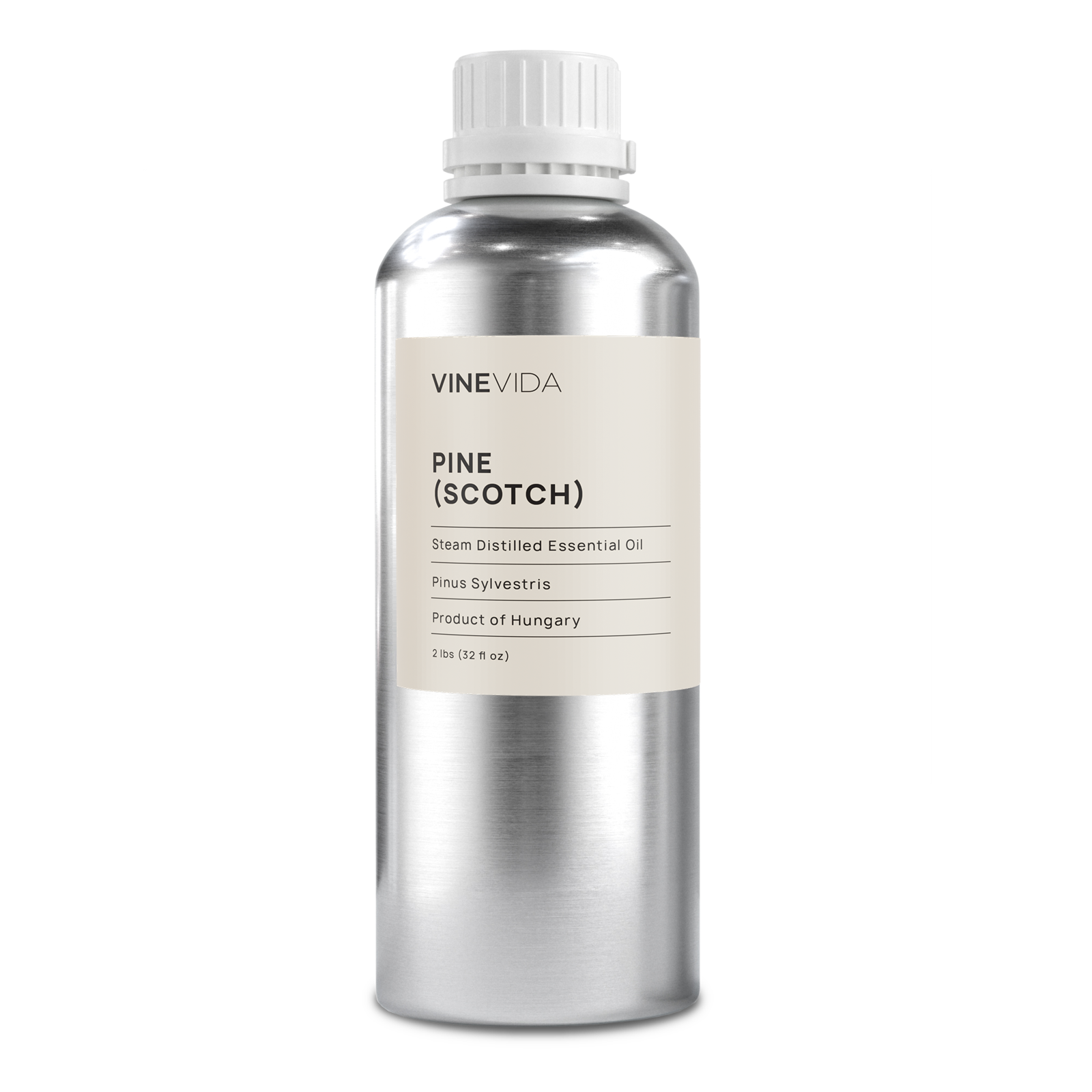
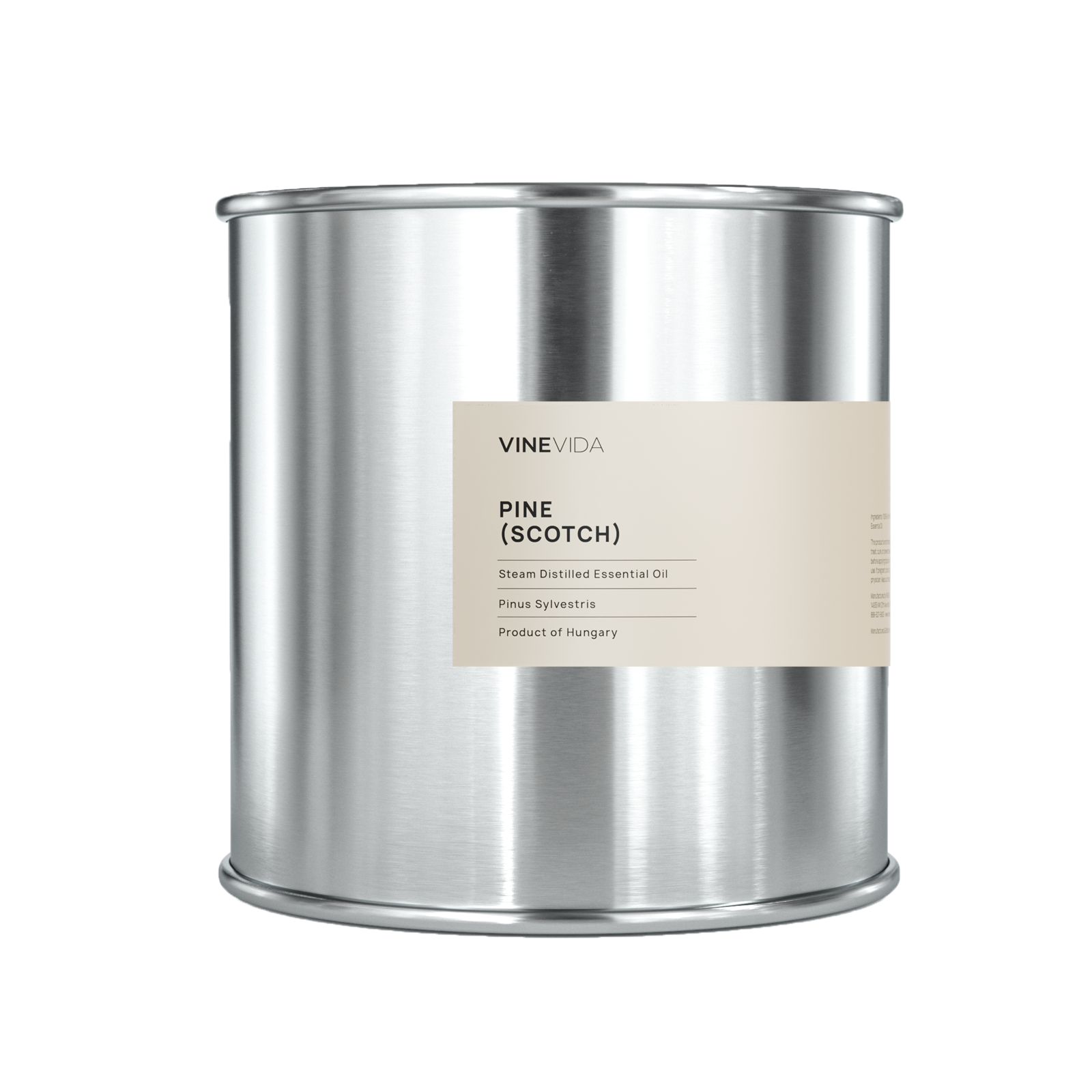
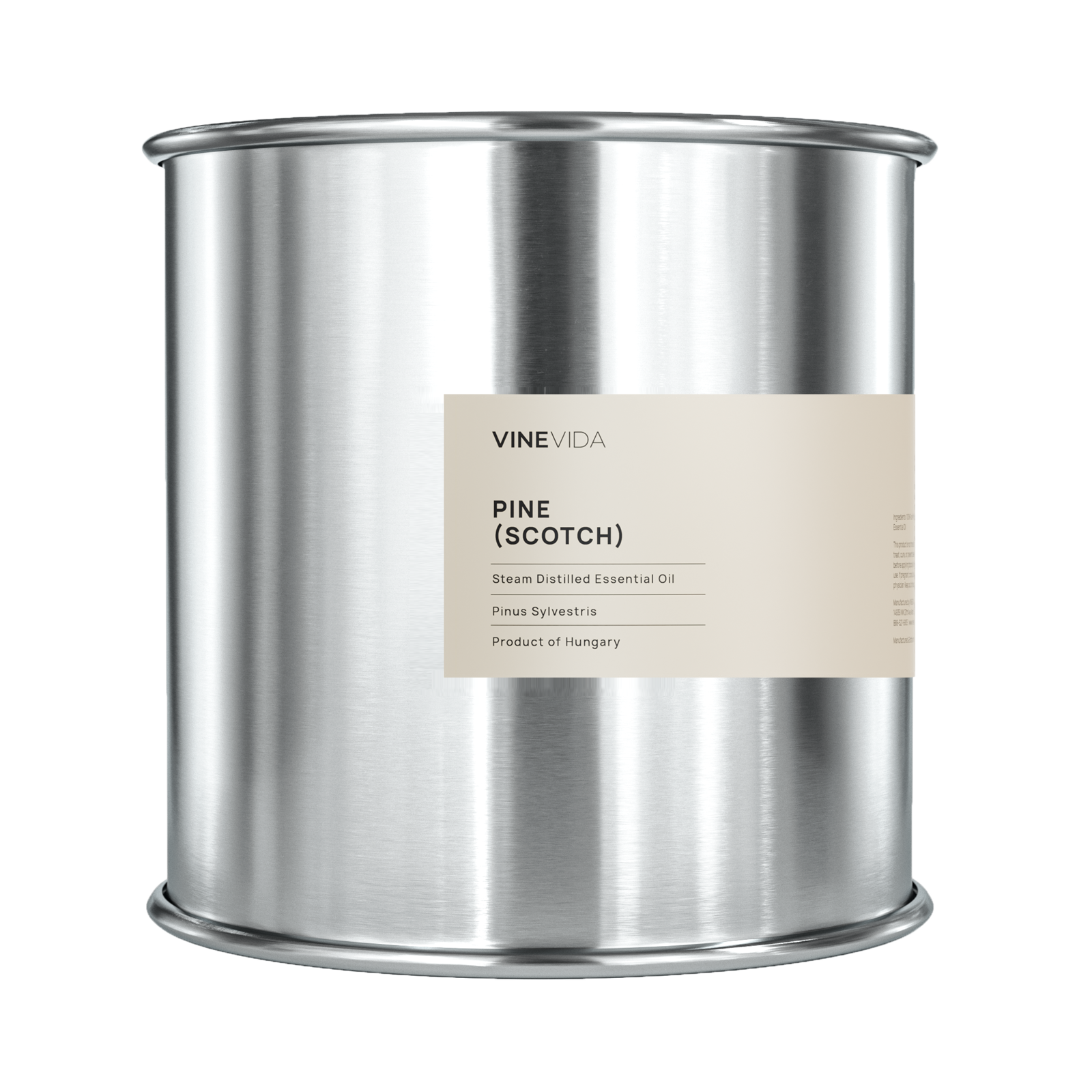
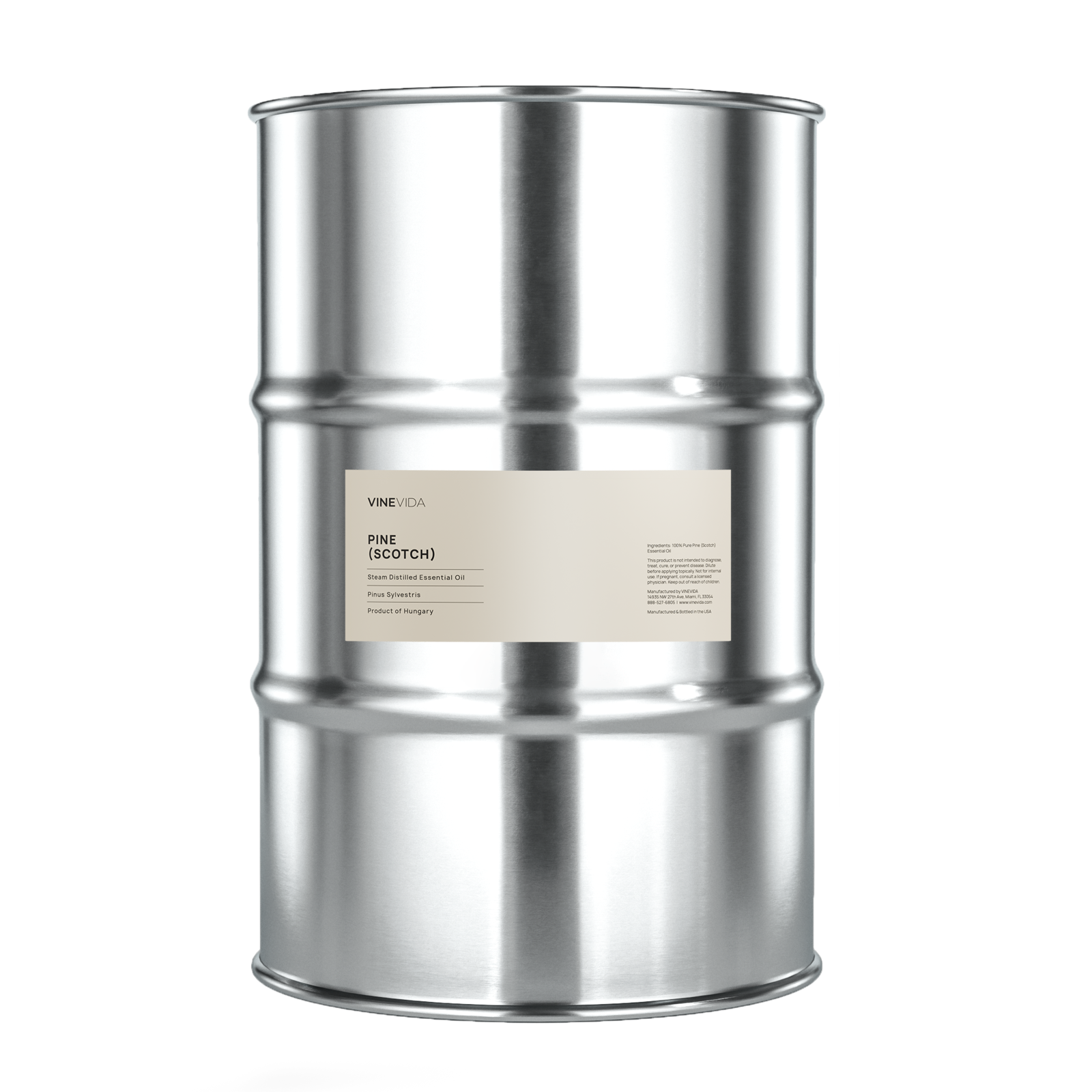




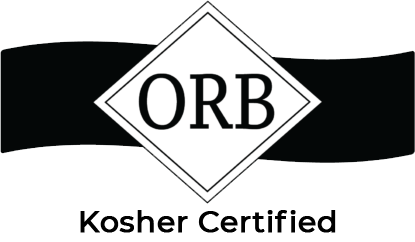
 IFRA Statement
IFRA Statement

















